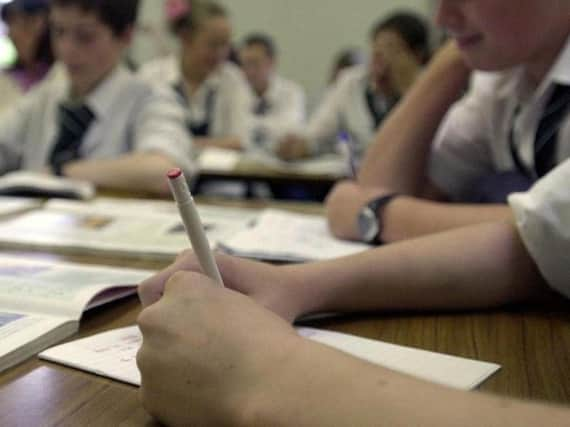Wigan special needs education has budget ‘crisis’


The Government says it has increased national funding since 2015 from £5bn to £6.3bn, following demonstrations by parents of children with special educational needs in May.
But the National Education Union says this does not take into account the increase in pupils that schools have to provide for, estimating they now face a shortfall of at least £1.2bn.
Advertisement
Hide AdAdvertisement
Hide AdWigan Council chiefs admit they are facing rising demands on services within Whitehall-induced budget constraints but say they are trying to tackle the overspend through the authority’s Special Education Needs and Disabilities (Send) Transformation programme.
Over the next five to 10 years there are plans for a huge overhaul of special needs education in the borough. Consultations are continuing but, if approved, the first phase would see Hope School move from its current location to the old Pembec and Central Park site on Montrose Avenue, where a completely new school would be built.
Virtually every other special school in the borough would then either move or be almost totally rebuilt.
Young people aged up to 25 who are assessed as having special educational needs are given an Education, Health and Care plan by their local authority.
Advertisement
Hide AdAdvertisement
Hide AdIn January 2015, there were 1,262 youngsters in Wigan with either an EHC plan or their predecessors, which were known as statements of special educational needs.
The budget for high needs pupils in 2015-16 stood at £27.4m in today’s terms, adjusted for inflation – the equivalent of £22,151 per pupil.
In 2018-19, the budget had only increased by three per cent, but the number of pupils needing support had gone up by 33 per cent, to 1,680.
The NEU estimates this meant a real-terms cut of £4,208 in per-pupil funding – the equivalent of a £6.6m for the 2018-19 year.
Advertisement
Hide AdAdvertisement
Hide AdSince then, the number of children with an EHC plan has increased by another seven per cent, reaching 1,804 in January 2019.
Kevin Courtney, joint general secretary of the NEU, said: “This is clearly a crisis, with pupils and parents bearing the brunt of real-terms funding cuts and the wholly inadequate planning by Government.
“Thousands of children and young people are missing out on the education they need and deserve, causing misery and worry among families struggling to get support for their children.”
The NEU says a lack of funding across the country is now leading to cuts in specialist provision, a loss of specialist support staff and increased waiting times for assessment.
Advertisement
Hide AdAdvertisement
Hide AdWhen a parent asks the council to assess whether their child has additional needs, it must carry out an assessment and draw up a plan within a maximum of 20 weeks.
In Wigan, two per cent of those referred in 2018 waited longer than this, although this was an improvement on three per cent the previous year.Cath Pealing, interim assistant director for education at Wigan Council, said: “Ensuring our children have the best start in life is a key priority for Wigan Council and we take our responsibility towards children with Special Educational Needs and disabilities very seriously.
“Like most local authorities nationally we are seeing a significant increase in demand for specialist places in addition to requests for Education, Health and Care plans. And like most, we are finding it a challenge to meet these demands within the budget allocated from government.
“Whilst we do anticipate a shortfall in our budget again this year, through The Deal and as part of our SEND Transformation programme we are confident that we can reduce the overspend and improve our services over the next few years.
Advertisement
Hide AdAdvertisement
Hide Ad“To do this, it is crucial to involve children and their families so we can review our offer, tailor it and to co-produce plans for the future.
“We will continue to work with our education settings and families to promote inclusion across the borough and transform the current offer in mainstream schools so that parents can feel confident that their children will get the support they need and achieve their full potential.
“We are determined to keep listening and working in partnership to make our approach to SEND the best it can be.”
The Local Government Association said councils were reaching the point where the money “is simply not there”, with special needs support at a tipping point.
Advertisement
Hide AdAdvertisement
Hide AdNadhim Zahawi, minister for children and families, said funding for high needs pupils was a priority, and an extra £250m of funding up to 2020 had recently been allocated.
He added: “At the same time, the Education Secretary has been clear that we are working closely with the sector as we approach the spending review, and we have launched a call for evidence to make sure the funding system is getting money to the right places at the right time.”